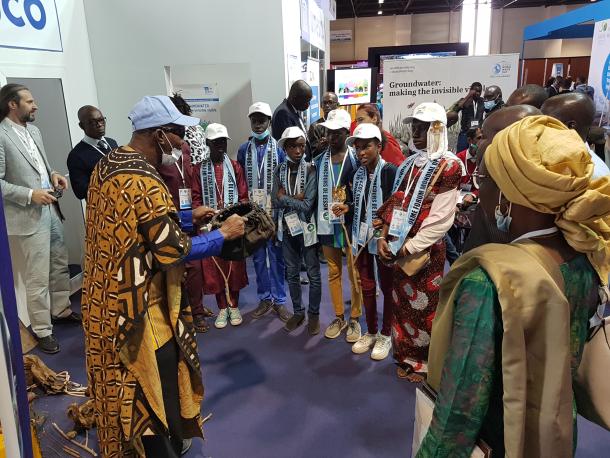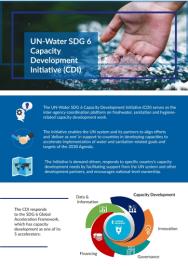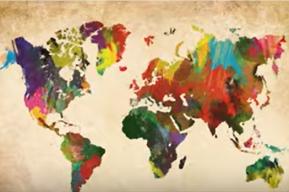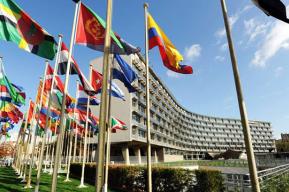Event
Making up for lost time by developing the capacity of people and organizations to manage freshwater more sustainably

Webcast
The United Nations Water Conference has been convened to review progress at the halfway mark towards the goals of the International Decade for Action on Water for Sustainable Development, which was adopted in 2018 to avert a global water crisis. At the time, it was estimated that there could be a 40% shortfall in freshwater resources by 2030. Five years on, all indicators point to the world being off track in implementing its water agenda to 2030.
The world is not on track for its water-related goals
In 2020, 2 billion people still lacked access to safely managed drinking water services, according to the latest United Nations Sustainable Development Report (2022). At the current rate of progress, the world will reach 81% coverage by 2030, missing the target and leaving 1.6 billion people without safely managed drinking water supplies.
You can consult the full programme in pdf
The world is on track for just 67% of the global population to have access to sanitation by 2030, leaving 2.8 billion people behind.
To reach universal coverage for safe drinking water, sanitation and hygiene by 2030, the report observes that current rates of progress would need to increase fourfold. Currently, 829,000 people die each year from diseases directly attributable to unsafe water, inadequate sanitation and poor hygiene.
For at least 3 billion people, the quality of the water they rely upon is unknown for lack of monitoring. Data are also lacking on groundwater, which often represents the largest share of freshwater in a country. Out of all reporting countries, only around 60% included information about groundwater.
Sustainable water management is becoming even more important with the ravages of climate change. ‘By 2030, an estimated 700 million people will be at risk of displacement by drought alone’, warns the report (2022).
Agricultural waste and untreated wastewater pose two of the gravest threats to environmental water quality globally, since they release excess nutrients into rivers, lakes and aquifers, damaging ecosystem function. Here again, we need to accelerate progress in this area, especially in regions with high population growth like Africa, as stated in the report, and hence ‘with a well-developed monitoring system, water-quality issues could be identified at an early stage, allowing mitigation measures to be introduced before severe deterioration occurs’.
The world’s wetlands are being lost at an alarming rate.
‘Wetlands are considered the most biologically diverse of all ecosystems and are breeding grounds for 40% of the world’s plant and animal species’, recalls the report. ‘Unsustainable use and inappropriate management of wetlands not only result in the loss of ecosystem services but can also pose direct risks, including disease. Since 1970, 81% of species dependent on inland wetlands have declined faster than those relying on other biomes and a growing number are facing extinction’.
Transboundary rivers, lakes and aquifers are shared by 153 countries around the world. Just 32 of the countries reporting data have operational arrangements for water cooperation. UNESCO is a member of the Transboundary Water Cooperation Coalition launched at UNESCO headquarters in December to improve these indicators. During the UN-Water Conference, UNESCO is co-organizing a side event on groundwater on 23 March.
A need to accelerate the rate of progress
From the aforementioned statistics, it is obvious that much remains to be done to build the capacity of stakeholders to manage their freshwater resources better.
That is why UN-Water, which groups more than 30 United Nations agencies, established the SDG 6 Capacity Development Initiative in March 2021 to support the SDG 6 Global Acceleration Framework.
The UN-Water SDG 6 Capacity Development Initiative is co-coordinated by UNESCO and the United Nations Department of Economic and Social Affairs, with the support of 35 institutional partners. These partners include various United Nations agencies, the Secretariat of the Ramsar Convention on Wetlands, the World Bank and specialized institutions, including several that function under the auspices of UNESCO such as the IHE Delft Institute for Water Education and the International Groundwater Resources Assessment Centre.
This initiative is demand-driven. That means that it responds to a particular country’s capacity development needs by facilitating support from the United Nations system and other development partners.
Skilled staff are needed to manage water resources more sustainably.
The SDG 6 Capacity Development Initiative is focusing on strengthening both institutional and human capacities to deliver water- and sanitation-related services. It is paying particular attention to education, training and to attracting and retaining a skilled workforce.
A plan to help public sector embrace new tech and business models
The side event will outline a roadmap containing an action plan. This action plan will include measures to foster innovation and strengthen the ability of public sector institutions to embrace new technologies and business models to improve water management in response to climate-change related challenges.
Speakers will emphasise aspects that are key to successful capacity-development processes. One aspect is inclusivity, by engaging youth and women as water leaders at all levels and by tapping into local and indigenous knowledge. A second aspect concerns managing institutional change and the third relates to the need for long-term financial support for capacity development through fit-for-purpose funding instruments.
The side event will highlight that capacity development is a game changer, that when it involves all segments of society – citizens, communities, schools, government agencies, the private sector and so on –, the results are tangible and long-lasting.









